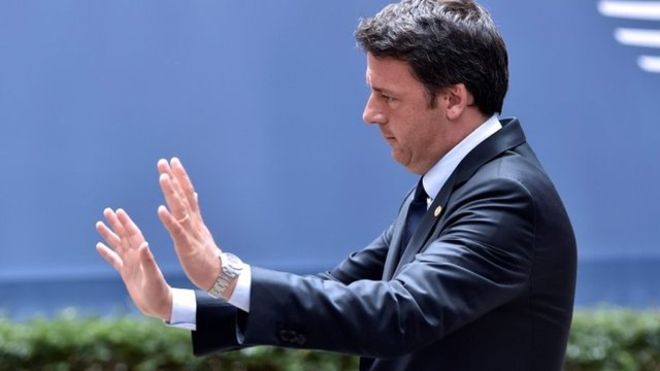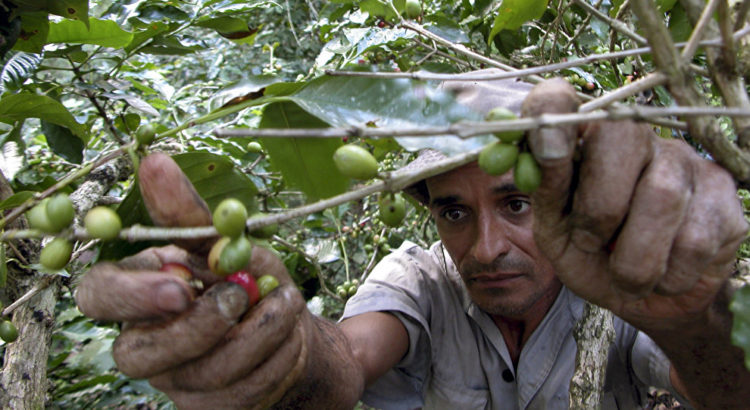Europa/Italia/junio de 2016/BBC
RESUMEN: El primer ministro italiano Matteo Renzi ha sugerido que los estudiantes del Reino Unido que desean estudiar en Europa podrían recibir pasaportes de otros países de la Unión Europea. Estaba respondiendo a las preocupaciones de que los estudiantes del Reino Unido que le resulte más difícil de estudiar en universidades europeas después de la votación del referéndum. Muchos intercambios de estudiantes europeos y oportunidades para estudiar en el extranjero se ejecutan a través de los programas Erasmus. Erasmus se programa en sí mismo dice que ha estado recibiendo muchas preguntas sobre el impacto, pero todavía no sabe qué va a pasar y que «respuestas definitivas» puede tomar algún tiempo.
Por: Sean Coughlan
Italian prime minister Matteo Renzi has suggested that UK students wanting to study in Europe could receive passports from other European Union countries.
He was responding to concerns that UK students might find it more difficult to study at European universities after the referendum vote.
Mr Renzi said he wanted to find a way for UK students to gain passports while they studied for degree courses.
The UK universities minister has sought to reassure EU students in the UK.
Jo Johnson has told EU students already at UK universities and those starting in the autumn that their funding would be honoured for the duration of their courses.
The proposals from the Italian prime minister, in comments to the BBC’s Nick Beake in Brussels, suggested there could be plans to lessen any disruption for UK students who wanted to study at European universities.
Mr Renzi said he would propose an initiative to allow UK students to have passports from EU countries.
«In other words, if a British student decides to spend two, three, four years in a university in Europe, we study now if it’s possible to give him a European passport – Italian, French or German.
«But for now, nothing is sure,» said Mr Renzi.
Many European student exchanges and opportunities to study abroad are run through the Erasmus programmes.
But it remains unclear whether UK students and UK universities will be able to participate after the EU referendum vote.
he Erasmus programme itself says it has been getting many questions about the impact, but it does not yet know what will happen and that «definitive answers» may take some time.
It remains unclear whether the UK government would buy back into the scheme, when it ceased to be a member of the EU.
UK universities, with many international staff and students, have been trying to work out the implications of the decision to end EU membership.
In an attempt to offer some stability, Goldsmiths, University of London, has promised to fix fees for EU students up to and including courses beginning in 2018-2019.
This is intended to reassure potential applicants that their status, in terms of fees, would not change while they were studying.
Students from the EU are currently treated on the same terms as UK students – and so pay fees of up to £9,000. But if EU students were to become «international» students, they would be liable for much higher fees.
UK universities have also sought clarity over research funding.
Analysis by the Royal Society suggests that between 2007 and 2013, the UK received 8.8bn euros (£7.3bn) in direct EU research funding and had contributed 5.4bn euros (£4.5bn).
Even after leaving the EU, it could be possible for the UK to pay to rejoin the EU’s research programmes as an «associate» member, although it would lose control over how such research was directed.
Foto: http://ichef-1.bbci.co.uk/news/660/cpsprodpb/FCF2/production/_90145746_033769686.jpg
Matteo Renzi suggests UK students could be given EU country passports while they studied in Europe
Fuente: http://www.bbc.com/news/education-36653599







 Users Today : 140
Users Today : 140 Total Users : 35459735
Total Users : 35459735 Views Today : 229
Views Today : 229 Total views : 3418201
Total views : 3418201